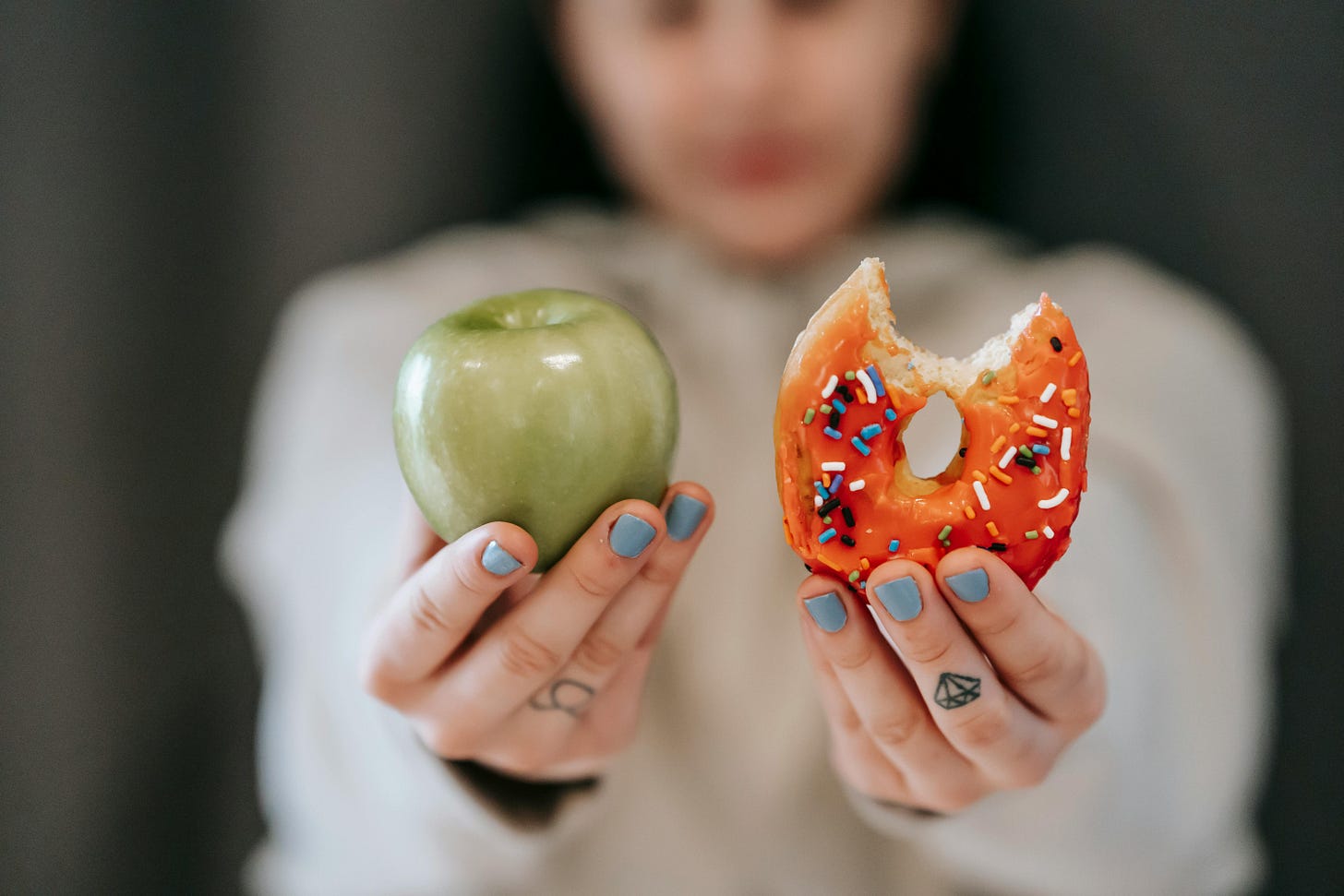The median age of an America citizen is 38.
That was a while ago for me - I turned 50 last Fall.
I’m older than more than half of the people alive on this planet. Ugh.

Throughout my 40’s, I had heard that 50 is a significant ‘milestone” because:
you stop giving a shi+ what other people think about you (a.k.a.: “give less f**ks”)
you start thinking more about retirement and what you’re going to do with all of that time
you are finally free from many of the obligations of your 30’s and 40’s
you can start pursuing hobbies and activities that don’t make money
you start focusing more on your health and wellness
That last one is a doozy.
“If you don’t have your health you have nothing” - anonymous

The closer I got to 50, the more I started focusing on what “health” means.
Diet and nutrition?
Fitness and exercise?
Stress and anxiety?
Illness and injury?
All of the above?
I have spent the better part of my working life (since age 17 when I got a job to pay for college) working under stress and with anxiety. I was always afraid of losing a job and not being able to pay for tuition, rent, mortgage… whatever the biggest bill was at the time.
This stress and anxiety peaked two years ago when I was in a role with high responsibility (and high compensation). 80-hour-plus work weeks, non-work time spent thinking about work-related issues, and an inability to focus on anything other than work was taking me on the inevitable path to burnout.
While visiting my parents for a long weekend, my Mom said,
“Whatever you are doing, you need to stop or you’re going to get cancer.”
(imagine: the sound of a car’s wheels screeching to a halt)
What my Mom said to me took a few months to soak in.
During that “waiting period”, my stress continued to level-up, anxiety peaked, sleep was fitful and interrupted, my body atrophied from inactivity, sugar cravings increased, and I found myself reaching for the liquor cabinet far more often than I otherwise would have (I don’t normally drink much and my husband doesn’t drink at all).
Without getting into details, I was finally able to get out of that downward spiral shortly before turning 50, and pivoted my whole lifestyle to refocus on my health. I’ve been lucky.
Most people struggle to make this pivot (for a variety of reasons) or never do.
The #1 cause of mortality in the United States is related to lifestyle choices.

The Scary Data about Mortality Rates
It didn’t take much effort to find out how much lifestyle choices impact our health and the leading causes of mortality.
Here's a highlight of the major factors that contribute to preventable deaths:
Tobacco Use:
Smoking is the leading preventable cause of death globally.
It accounts for approximately 40% of cancer-related deaths. (source)
Diet and Obesity:
Poor dietary habits and obesity are linked to various non-communicable diseases, including heart disease, diabetes, and early death.
Obesity contributes to about 18% of cancer cases in the U.S. (source)
Physical Inactivity:
Lack of physical activity is associated with a higher risk of chronic diseases such as cardiovascular disease and diabetes.
Physical inactivity accounts for approximately 24.5% of avoidable deaths. (source)
Alcohol Consumption:
Excessive alcohol intake is linked to various health issues, including liver disease and certain cancers.
High alcohol consumption is responsible for about 3.7% of premature deaths. (source)
We Are Eating Ourselves to Death
I found this article in Obesity Science and Practice to be spot-on. 🎯
It focuses on the health impacts of ultra-processed foods and how we can get some of those lost years back by reducing the Goo in our diets.
Here are some snippets:
Ultra-processed foods account for 60% of the average American’s diet, and include things like sweet and savory snacks, processed meats, packaged frozen entrées, instant soups, and sweetened beverages…
Highly processed foods are often calorie-dense, higher in refined grains, sugar, saturated fat, and salt, and lower in fiber and other important nutrients… They contain little to no whole foods, and instead are packed with additives such as artificial flavors, preservatives, emulsifiers, and sodium.
The article continued with a message of hope:
We can lose weight, reduce illness, and have more energy if we stop eating ultra-processed foods.
Read more of my articles on The Goo-Free Lifestyle where I write about these topics in more detail, and offer tips and recipes to help you get there.




